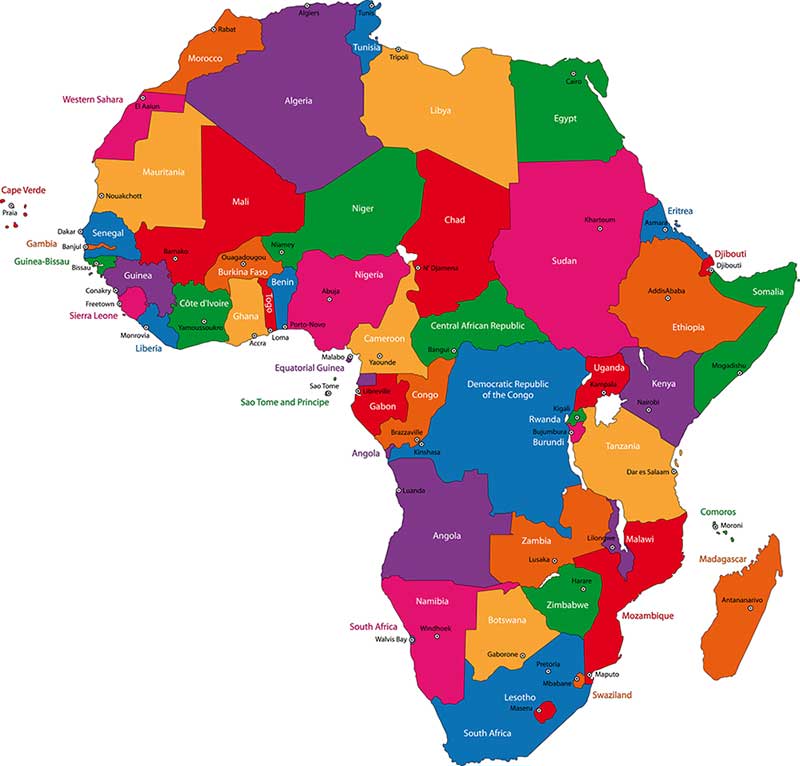Africa Looks To Expand Its Cooperation With China As 2021 Trade Increases 38.2%.
The 8th Forum On China-Africa Cooperation Is Taking Place In Dakar
The eighth Forum on China-Africa Cooperation (FOCAC) is currently taking place in Dakar, Senegal, both today (Monday) and tomorrow.
The theme of this important conference is “Deepen China-Africa Partnership and Promote Sustainable Development to Build a China-Africa Community with a Shared Future in the New Era”.
The African Continental Free Trade Agreement
It is especially pertinent this year as Africa ratified the African Continental Free Trade Agreement (AfCFTA) from January 1st this year and FOCAC gives all sides an opportunity to evaluate the impact and development of this. AfCFTA has had the effect of reducing to zero 95% of all previous intra-Africa tariffs that were imposed on cross-border trade. Only Eritrea has not yet signed up to the deal. With that previous tariff expense eliminated, sourcing for African products can now take place on a continental basis thus expanding the potential for African supply chain development exponentionally.
When that capability is matched to Special Economic Zones (SEZ), it becomes possible to match African sourced components with products imported duty free into SEZ bonded areas, where these can then be worked on to produce hybrid African-Imported final products. These can then either be resold back onto the AfCFTA markets (at which point import duty is liable on the imported components) or reexported to other markets – such as China and the upcoming RCEP trade bloc. This takes advantage of both lower African sourcing and production costs.

FOCAC 2021’s remit is to “review and assess the follow-up implementation of the outcomes of the 2018 FOCAC Beijing Summit as well as the joint China-Africa response to Covid-19, and chart the course for China-Africa relations for the next three years and more to come,” according to Chinese foreign ministry spokesman Wang Wenbin. Wang also predicted that the forum would “inject new impetus into the China-Africa comprehensive strategic and cooperative partnership”.
The forum can be expected to “adopt measures in such key areas as health, investment and trade, food security, climate change, human resources and digital innovation, with a focus on transforming and upgrading China-Africa cooperation to improve its quality and efficiency,” China’s ambassador to the Seychelles, Guo Wei, told the Seychelles News Agency.
China’s President Xi Jinping will address the opening session of the forum via video link, but will not be attending in person, as the event will take place at ministerial rather than summit level.
Four Main FOCAC 2021 Themes
Senegal’s foreign minister and the Chinese ambassador to Dakar, Xiao Han, announced that the forum would adopt four key resolutions: a Dakar Action Plan (2022-2024); the 2035 Vision for China-Africa Cooperation; the Sino-African Declaration on Climate Change; and the Declaration of the Eighth Ministerial Conference of FOCAC. These will be adopted at the end of the conference and are likely to serve as the main pillars of the forum. The Senegalese foreign minister, Aïssata Tall Sall as host nation said that the forum would appraise the results of China-African cooperation during the Covid-19 pandemic and define how it would continue for the next three years and beyond.
She also announced that the seventh China-Africa Business Conference would take place in parallel with FOCAC at the Diamniadio Exhibition Centre in Dakar and by video conference. The last time this event was held in Beijing, more than 1,000 African representatives from over 600 enterprises, business groups, and research institutions attended. Despite covid travel issues this is certain to be well attended both personally and online.
“FOCAC is our common good. Its success will bring prosperity to current and future generations of Africans and Chinese.” said Sall. In an interview with the Xinhua news agency the minister said she expected the forum to address Africa’s place within the Belt and Road Initiative, underlining its importance to world trade.
Qian Keming, vice minister of China’s MOFCOM, stated on November 17 that from January to September 2021, China-Africa trade reached US$185.2 billion, up 38.2% year-on-year, with China’s direct investment in Africa totaling US$2.59 billion, up 9.9% year-on-year. To contrast, China’s total 2020 trade with the EU was about US$586 billion, meanng that China-Africa trade is about 30% of its level with the EU. Those comparisons can be expected to narrow in Africa’s favour.
China’s new direct investment in Africa reached US$4.2 billion in 2020, while as of the end of last year, total Chinese investment in Africa had exceeded US$43.4 billion, covering more than 50 African countries.
A main stated aim is for China and Africa to continue technology exchanges in areas including green and low-carbon sectors, clean energy and the digital economy, in order to achieve the sustainable development of China-Africa trade. Guinea-Bissau and Eritrea became the latest African nations to join the Belt and Road Initiative last week.
Related Reading
About Us
Silk Road Briefing is written by Dezan Shira & Associates. The firm has 28 offices throughout Asia, and assists foreign investors into the region. For strategic advisory and business intelligence issues please contact the firm at silkroad@dezshira.com or visit www.dezshira.com





